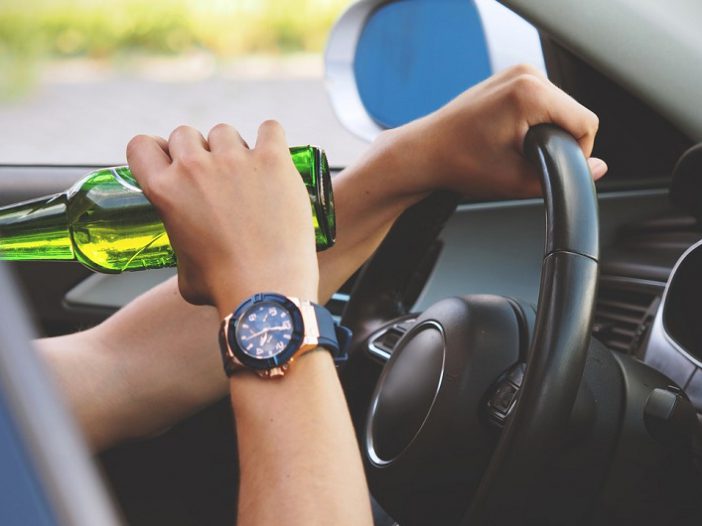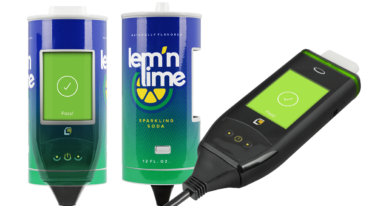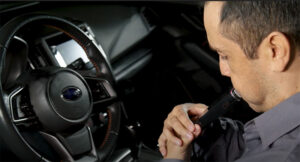
What Happens When You Drink and Drive?
There are certainly many reasons out there to NOT drink and drive, including the safety of yourself and others, and avoiding severe legal consequences. However, despite the inherent dangers, people continue to drive while intoxicated.
The problem is, people will continue to do so as long as they keep getting away with it. Some may drive drunk even after they have gotten a DUI or DWI and risk entering the realm of “repeat offenders.” Often, the only time a person realizes they should not have driven drunk is that moment when they are pulled over, or when an accident actually occurs. Otherwise, they may laugh and shrug it off because they made it home safely, without acknowledging the fact that they put lives in danger.
Regardless of the reasons a person may decide to drink and drive, what happens if they were to get caught and stopped for driving under the influence (DUI)? Let’s have a look at what happens when you drink and drive.
You’ll Be Put Through Field Sobriety Tests
If you are pulled over on the suspicion of driving under the influence, the officer will ask you to exit your vehicle and then will put you through the Standardized Field Sobriety Test to determine if you are driving impaired. The three tests involved in the SFST are the horizontal gaze nystagmus (HGN), the walk-and-turn, and the one-leg stand tests. These tests were developed way back in the 1970s and are scientifically validated. They are often used as admissible evidence in court.
The horizontal gaze nystagmus is an involuntary jerking of the eyeball that occurs when the eyes gaze to the side. Normally, this occurs when the eyes rotate at high peripheral angels, but when a person is impaired by alcohol, the nystagmus is exaggerated and may occur at a lesser angle. The impaired person will also have difficulty smoothly tracking a moving object.
In the test, the officer will observe the suspect’s eyes as they slowly follow a small object such as a pen horizontally with their eyes. If the person cannot track the object smoothly, if the jerking motion is distinct and sustained at maximum deviation, or the angle of the onset of jerking is sooner than it would normally be, the person is likely to have a BAC above 0.08.
The next test, the walk-and-turn test, involves just that — walking and turning. The suspect will be directed to take nine steps, touching heel-to-toe, along a straight line. After they take the steps, the person must turn on one foot and return to the starting point in the same manner. If they cannot keep their balance while listening to instructions, begin before the instructions are complete, stop to regain balance, do not touch their heels to their toes, use their arms for balance, step off of the line, or take an incorrect number of steps, or any combination thereof, it may indicate that they are under the influence.
The final test, the one-leg stand test, involves standing on one foot, with the other raised about six inches off of the ground. The person will then count aloud, starting with one thousand one, one thousand two, etc., until they are told to put the foot down. The subject is typically timed for 30 seconds. Indications of impairment here include swaying, using arms for balance, hopping, and putting the foot down.
Officers will ask if there is any other reason the subject may not be able to complete any of the tests before they begin each test. If the suspect fails any of the tests, they will likely be asked to take a breathalyzer test.
A Breathalyzer Test Will Be Administered
The breathalyzer test will give an accurate estimate of your blood alcohol consumption (BAC). The legal limit to drive in the United States is 0.08 percent, however even those with a reading under the legal limit may find themselves subject to some legal consequences, depending on the circumstances. If a person has a reading of 0.08 or above, they will then be arrested and taken into the local precinct.
You can refuse the breathalyzer test, but in some states, this will result in immediate penalties.
You’ll Be Arrested & Booked
If you’re asked to submit to a breathalyzer test, or if you fail your field sobriety test, you will be arrested, put in the back of the police vehicle, and booked at the local station on suspicion of driving under the influence (DUI). Here you will be photographed and fingerprinted as part of the booking process.
In some states, you can be released immediately as long as someone comes to the station or jail, pays your bail, and drives you home, but many states now have laws requiring you to be held for a period of time until you sober up.
You’ll Receive a Summons to Appear in Court
After arrest and booking, you will also get a ticket or summons that tell you when your day in court will be. At that time, you will have to appear in court to face your DUI charges. This can be a humiliating experience for many. Should you try to fight the charges, you will most likely see a video of yourself failing the field sobriety test taken from the officer’s dashboard camera or at the jail where you were processed.
Your Driver’s License Will Be Suspended
Whether it’s your first conviction or not, the sentence for a DUI will include the suspension of your license for a period of time. How long your license will be suspended varies on the severity of your offense, as well as state-by-state laws.
Some states will allow you to apply for a hardship license, also known as a restricted license, that will enable you to drive to work or school while your license is suspended. However, you will not be able to drive for any other reason, and your car may be outfitted with an ignition interlock device.
In some states, if you refused to submit to a breathalyzer or blood test, or refused to take the field sobriety test, your driver’s license will be suspended immediately.
You Will Have To Pay a Fine
Part of your sentence, if you are convicted of DUI or driving while intoxicated (DWI), will include paying a fine, which can be substantial in some cases. Each state has laws that set a minimum and maximum fine for drunk driving, but these fines may be raised by other circumstances, such as if any property was damaged, a child was endangered, or someone was injured as a result of your driving being impaired. Most states will also require you to pay for the court costs that will be associated with your case.
You Could Go to Jail
Jail time is becoming a mandatory penalty in a growing number of states, even for first-time DUI offenders. The first-offender jail terms are typically only a day or two that can be served on a weekend, but jail time is jail time.
Jail will be mandatory in most states for repeat offenders, and the terms are much longer than just a couple of days. The circumstances surrounding your case, such as any aggravated circumstances, will also have an effect on the length of your term. Overall, the length of time you need to serve will vary widely based on state.
You Could Be Given Probation
In lieu of going to jail, many states will require you to complete a probation sentence. The terms of your probation will be determined by your sentencing judge, but will usually require visiting a probation officer and sticking to the terms and conditions outlined in your sentencing. If you fail to meet the terms of your probation, you can be sent to jail.
The probation sentence is also another expense you will be required to pay, typically in the form of a monthly fee for the cost of administering and supervising your probate sentence.
You May be Required to Go to Drunk Driving School
As part of your sentencing, the judge may require you to attend DUI school to educate you on drinking and driving. The goal is to prevent you from drinking and driving again, and most DUI offenders in almost every jurisdiction will be required to pay for and attend a DUI school.
The DUI education program will be a requirement if you want to have your driver’s license reinstated. This program is usually referred to as drunk driving school. The classes will include hours of drunk driving prevention education, as well as an assessment of your personal drinking habits. As a result of this assessment, you may also be asked to attend an alcohol evaluation to see if you need help for an addiction to alcohol.
You May Need to Undergo Alcohol Evaluation
Even before your drunk driving prevention education, the judge may decide that you need to undergo an alcohol evaluation to see if you have an alcohol abuse disorder or addiction. This will be conducted by a trained counselor. This will usually involve the counselor asking you a series of questions about alcohol and how it affects your life.
Should the evaluation find that your drinking is at a level of alcohol abuse or dependence, you may also be required to enter and complete a court-approved alcohol treatment program in order to regain your license. Remember, the goal of these penalties is to make sure that you won’t drink and drive ever again, so while the penalties may seem to snowball, it is for your own good, as well as the safety of others.
You Will End Up Paying More For Auto Insurance
There are absolutely some trickle-down effects, and one you’ll notice right away is a much more expensive insurance policy. Your insurance broker may require you to get a special insurance policy, which is known as SR-22 insurance, before you can legally drive again. This may as much as double or triple your premiums, and will sometimes be required by the state as well. You will likely have to carry this more expensive auto insurance policy for a period of three years.
You May Be Required to Install an Ignition Interlock Device
We mentioned this previously, but some states may even require you to install an ignition interlock device. When this device is installed, the driver will have to blow into it and have alcohol-free breath in order for the car to start. The device will bring along with it some lofty installation and monthly fees as well, adding to the overall cost of a DUI.
Summary
As you can see, there are numerous penalties associated with drinking and driving, and the risks should far outweigh the “reward.” Getting yourself a DUI will have lasting effects on your life, including legally, personally, professionally, and financially. The next time you’re thinking about drinking and driving, consider these consequences and make arrangements to safely get home.


